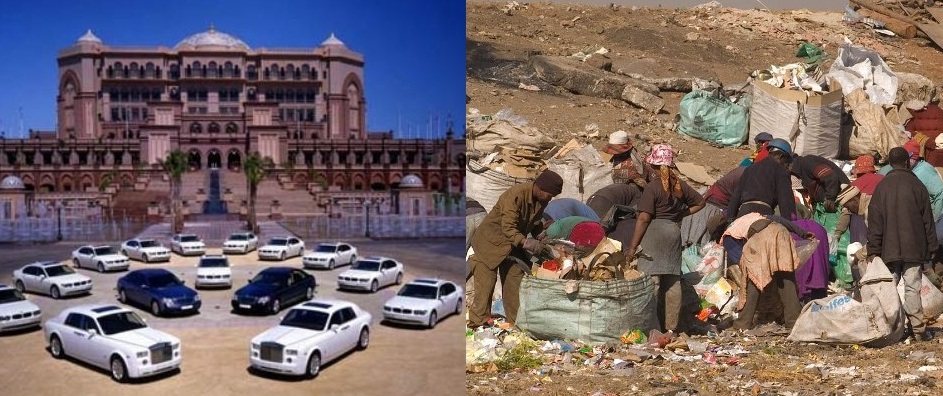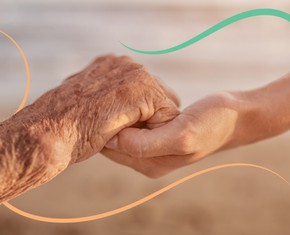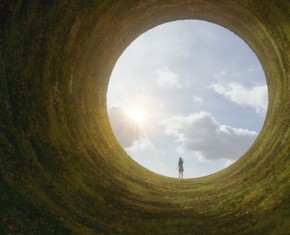The views expressed in our content reflect individual perspectives and do not represent the authoritative views of the Baha'i Faith.
All of the Central Figures of the Baha’i Faith – The Bab, Baha’u’llah, and Abdu’l-Baha – evinced an enormous level of care, sympathy and concern for poor people.
Baha’u’llah, raised in a family of wealthy noblemen and expected to take a lucrative position as a minister to the Court of the Shah, instead rejected that position and devoted the early part of his adult life to helping the homeless, the hungry and the disenfranchised in Persia. He became known as “The Father of the Poor” as a result of that commitment, and several commentators predicted that Baha’u’llah would soon spend himself and his family into poverty by giving everything they had to those in need. But instead of fearing impoverishment, Baha’u’llah asked everyone to follow that selfless example:
They who are possessed of riches, however, must have the utmost regard for the poor, for great is the honor destined by God for those poor who are steadfast in patience. By My Life! There is no honor, except what God may please to bestow, that can compare to this honor. Great is the blessedness awaiting the poor that endure patiently and conceal their sufferings, and well is it with the rich who bestow their riches on the needy and prefer them before themselves. – Gleanings from the Writings of Baha’u’llah, p. 202.
When Abdu’l-Baha travelled to the West in the early part of the Twentieth Century – even though he had lived his entire life in the Middle East – he commented frequently on the dire poverty he saw in Europe and North America; gave money and support to charities like Save the Children and many others; visited Skid Row missions and lovingly embraced, encouraged and helped the poor. When the Rector of a London parish asked Abdu’l-Baha what he thought of England, he said:
I find England awake; there is spiritual life here. But your poor are so very poor! This should not be. On the one hand you have wealth, and great luxury; on the other hand men and women are living in the extremities of hunger and want. This great contrast of life is one of the blots on the civilization of this enlightened age. You must turn attention more earnestly to the betterment of the conditions of the poor. Do not be satisfied until each one with whom you are concerned is to you as a member of your family. Regard each one either as a father, or as a brother, or as a sister, or as a mother, or as a child. If you can attain to this, your difficulties will vanish, you will know what to do. This is the teaching of Baha’u’llah. – Abdu’l-Baha in London, p. 91.
This central Baha’i principle – the elimination of the extremes of poverty and wealth – flows throughout the economic and spiritual teachings of the Faith:
Certainly, some being enormously rich and others lamentably poor, an organization is necessary to control and improve this state of affairs. It is important to limit riches, as it is also of importance to limit poverty. Either extreme is not good. To be seated in the mean is most desirable. If it be right for a capitalist to possess a large fortune, it is equally just that his workman should have a sufficient means of existence.
A financier with colossal wealth should not exist whilst near him is a poor man in dire necessity. When we see poverty allowed to reach a condition of starvation it is a sure sign that somewhere we shall find tyranny. Men must bestir themselves in this matter, and no longer delay in altering conditions which bring the misery of grinding poverty to a very large number of the people. The rich must give of their abundance, they must soften their hearts and cultivate a compassionate intelligence, taking thought for those sad ones who are suffering from lack of the very necessities of life.
There must be special laws made, dealing with these extremes of riches and of want. The members of the Government should consider the laws of God when they are framing plans for the ruling of the people. The general rights of mankind must be guarded and preserved.
The government of the countries should conform to the Divine Law which gives equal justice to all. This is the only way in which the deplorable superfluity of great wealth and miserable, demoralizing, degrading poverty can be abolished. Not until this is done will the Law of God be obeyed. – Abdu’l-Baha, Paris Talks, p. 152.
The Baha’i teachings ask for justice, but they also ask for mercy and kindness. That kindness and concern for others centers around the Baha’i ideal of the oneness of humanity and love for every human being.
You May Also Like
Comments

















http://www.bbc.com/news/business-35339475